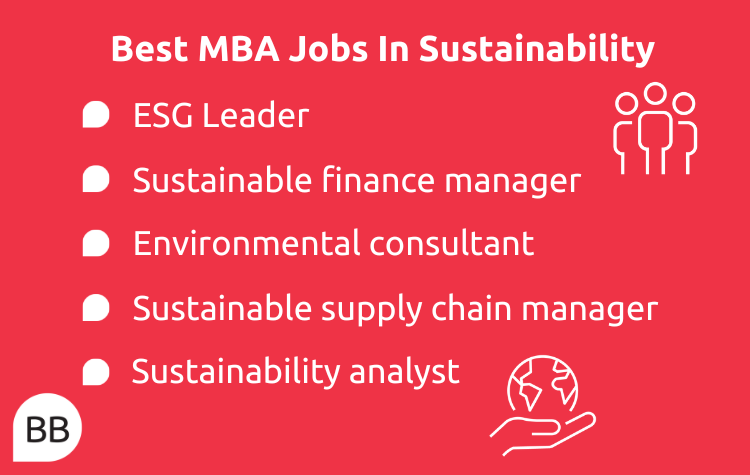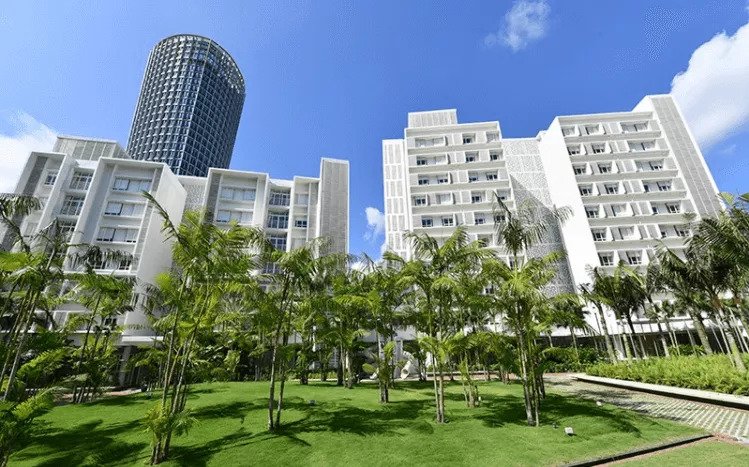If you’re a challenge-hungry MBA who wants to make a real impact in the world, a career in sustainability might be for you. Southeast Asia (SEA) is one of the most vulnerable regions to climate change globally, which means that businesses across the region are looking to implement sustainable changes at a rapid rate.
By 2030, SEA is predicted to unlock $1 trillion in economic opportunities linked to sustainable initiatives, according to a report by Bain and Company. MBAs who can combine an understanding of environmental issues with leadership and managerial skills will be well positioned to take on top MBA jobs in sustainability.
Here are five of the best MBA jobs in sustainability emerging across Southeast Asia, and how going to business school can help.
1. ESG leader
As countries across SEA implement more environmental, social, and governance (ESG) measures, businesses within the region are improving the visibility and management of ESG risk factors. One MBA alum, Mathias Varming from Asia School of Business (ASB) in Malaysia, leveraged his previous work experience in climate change mitigation and used his MBA to lead ESG at energy company Ping Petroleum in Kuala Lumpur.
Mathias is leading the company towards a Net Zero agenda and helping Ping Petroleum to prioritize sustainability concerns. ASB MBA students can also study courses like Energy: Markets, Public Policies, and Sustainability and Sustainable Business, learning about areas like how to balance profits and purpose and understanding complex policy issues.
2. Sustainable finance manager
After securing $665 million during the 2021 United Nations Climate Change Conference (COP26), the Asian Development Bank (ADB) are investing in post-covid green infrastructure projects in SEA. The funding is being used to support the ASEAN Catalytic Green Finance Facility (ACGF)—a platform managed by the ADB that helps governments to scale investments in sustainable transport, water sanitation, and climate-resilient agriculture.
This green finance project is one area that MBA grads with an aptitude for finance and sustainability might look to if they’re interested in roles like sustainable finance manager or investment analyst. ASB has previously worked with the ADB as part of the business school’s Action Learning (AL) curriculum. Across the 20-month ASB MBA, students participate in five consultancy-based projects with ASB’s global hosts, solving real-world business challenges like implementing green investment strategies.
The ASB MBA also prepares students for roles in green finance through courses like Financial Analytics and Innovation, where students can learn the financial and data tools necessary to combat climate change.

3. Environmental consultant, ecotourism sector
As pressing climate issues take center stage, the ecotourism sector continues to grow. Ecotourism is a mode of responsible travel where tourists seek to minimize their impact on the planet and local people. Malaysia, for example, is home to several ecotourism hotspots, including the Taman Negara National Park and Batu-Batu Island. Jobs in ecotourism can vary from environmental consulting at firms or government bodies that support ecotourism, or leading social enterprise startups.
As part of the ASB MBA, students can participate in two-week sustainability practicums. One practicum involved students travelling to an ecotourism destination, the Tengah Island Conservation Center in Batu-Batu Island. To understand the environmental challenges that face businesses in the region, students worked on renewable energy generation, waste management, and pollution control.
Having this sustainability-focused knowledge will be crucial when entering careers in environmental consulting within the ecotourism sector. ASB MBA grads can then enhance their consultancy skills even further through courses like Communications and Advanced Strategy.
4. Sustainable supply chain manager
As many corporate firms move towards their sustainability goals, it’s become increasingly important to implement environmentally and socially responsible practices into the business supply chain. MBA grads can take advantage of these changing business priorities, leading the way in reducing companies’ carbon footprint all the way from design to distribution.
The ASB MBA helps prepare students for this career through implementing sustainability teachings in core courses like Supply Chain Management and Operations Strategy, exploring areas like sustainable food production. Students can also learn about managing sustainable supply chains throughout the practicums. Previous practicums have focused on improving the sustainability of the palm oil supply chain, with students analyzing data from palm oil mills, farms, and collection centers.
5. Sustainability analyst, renewable energy sector
By 2030, it’s estimated that there could be around 1.7 million jobs in the SEA renewable energy sector. The Association of Southeast Nations (ASEAN) has set targets to source 23% of the primary energy used within the region from renewable sources like hydropower, wind, and solar power by 2025. MBAs might look to jobs within this sector like sustainability analyst, using data and research to stay ahead of changing trends and lead on business strategy.
The ASB MBA can help students learn how to use data analytics to drive sustainability through courses like Data, Optimization Models, and Decisions and Data Science for Managers. Big Three consulting firm McKinsey work on sustainable initiatives across the SEA region and are continually offering exciting MBA jobs across Southeast Asia. MBAs could apply for sustainability solution analyst or climate analyst roles in Singapore City or could land roles like energy solution analyst in Kuala Lumpur.
For anyone looking to launch a career in Asia within the burgeoning sustainability sector, joining a hands-on MBA program can equip you with the environmental knowledge and leadership skills to direct businesses towards climate goals.
Read the full article here.
This article was originally published on BusinessBecause, a network helping MBA students make connections before, during and after their MBA.





